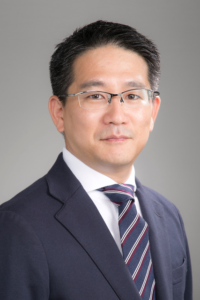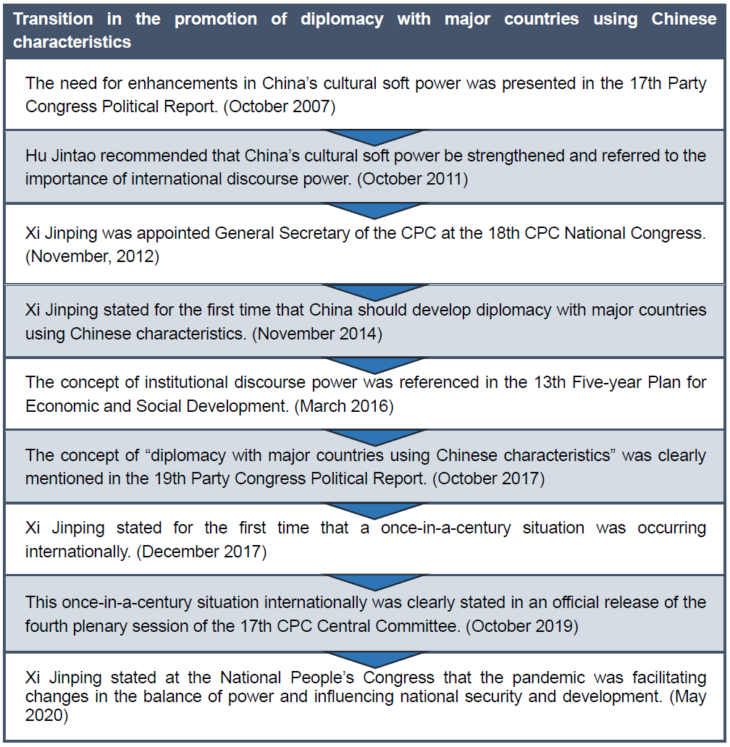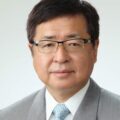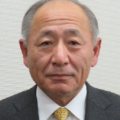How should Japan approach China, a country that takes a hardline stance against the backdrop of insecurity in the world order?
Kamo Tomoki, Professor, Keio University
Key points
- China aims to embed its requests into the current world order
- Both cooperation and coercion, two conflicting concepts, are prominent in its diplomacy with major countries
- Japan should present a new world order that includes China

Prof. Kamo Tomoki
China’s external actions are growing tensions in the Asia-Pacific region due to the deepening of the US-China trade friction.
The Communist Party of China (CPC) established developmentalism as one of its slogans and is on a path of reform and open-door policies in which its ruling guarantees internal and external environments that must be established to support the slogan. Through its diplomacy, China aims to facilitate reform and open-door policies; that is, to establish a stable international environment that secures development. It has already accomplished high economic growth and is in the process of becoming a middle-income country. Even so, it is determined to remain on this track.
Why does the current leadership choose to take hardline external actions even though it may create international conflict? I will attempt to answer from the perspective of motives on policy decisions.
The current leadership calls its diplomatic policy taikoku diplomacy with Chinese characteristics. What is taikoku? According to the Chinese government’s official release, it is interpreted as a major country. A book that elaborates on President Xi Jinping’s statements refers to it as a decisive power that impacts issues related to world peace. The leadership is concerned with the expansion of this power.
The current leadership has been emphasizing institutional discourse power, which is influential power generated by logic and values in a speaker’s words, explanations and power that makes the listener accept what the speaker says. It may be defined as power that makes the listener have empathy and respect for the speaker’s words. Institutional discourse is power that makes China’s requests accepted for creating agendas and voting in international systems that constitute the world order.
This was written in the 13th Five-year Plan for Economic and Social Development (2016–2020). With a view toward economic and social development, the plan features a policy of achieving a higher level of openness within the economy, participating actively in global economic governance and the global supply of public goods, seeking a greater say in institutions for global economic governance, and looking to build more international communities of interest.
In particular, it indicates the expansion of agenda creation rights and voting rights in existing international systems, such as the World Bank and IMF. It also means enhancing the influential power of new international systems, such as the Belt and Road Initiative (BRI) and Asian Infrastructure Investment Bank (AIIB), in the establishment of which China has taken the initiative, and playing a leading role in building international systems in new areas such as the deep sea, cyber security, the polar region and space.
This idea is connected to China’s cultural soft power, a concept presented by the Hun Jintao leadership in 2007, which is based on the understanding that a nation with that power can take the initiative in international competition and the assumption that international influential power is insufficiently increased through the enhancement of economic power alone. The concept of strengthening international discourse power was raised to boost China’s cultural soft power. Institutional discourse power is a more active initiative.
China has changed its diplomatic policy from diplomacy aimed at adapting to the current world order to diplomacy focused on embedding its requests into the current world order. This is its diplomacy with major countries.
China decided to make this change because it wants to remove the sense of insecurity under the existing world order.
An analysis made by a former Chinese diplomat provides a hint. According to the diplomat, the current world order called Pax Americana consists of three factors: the value of the United States or Western countries, military alliances centered on the United States, and the United Nations and its international organizations. The diplomat concluded that the United Nations and its organizations are acceptable to China because the first and second factors for the current world order conflict with the country’s interests. We should understand what creates the sense of insecurity to picture Chinese diplomacy.
The leadership thought that a once-in-a-century change was taking place for the world order as the US–China trade friction escalated. It sees the world at a turning point where the rules for international policy are about to change due to a shift in the balance of power. In China, this situation is discussed partly from the perspective a decline in US hegemony. The COVID-19 pandemic has increased the level of uncertainty.
Diplomacy with major countries is based on two conflicting approaches—cooperation and coercion. Cooperation is an inclusive approach taken against the backdrop of economic power. For example, the leadership is encouraging international cooperation for the implementation of measures against infectious diseases under the slogan of a community of common health for mankind.
On the other hand, coercion is an approach implemented with the intent of making Chinese diplomatic principles and national interests (“storylines” disseminated by China) accepted by its counterparts. It is intended to justify Chinese actions with respect to the maritime order of the East China and South China Seas, or to make the one-China principle accepted by countries that receive its aid. Hardline external actions discussed in this paper are part of this approach.
Diplomacy in which both cooperation and coercion are exercised is witnessed in the country’s African diplomacy. Joint statements regarding the framework of cooperation between China and countries in Africa include language showing support for the Chinese stance with regard to Taiwan and Hong Kong issues. It is appropriate to refer to the major-country diplomacy as diplomacy characterized by the exercise of both cooperation and coercion against the background of economic power.
Why is the leadership choosing to take hardline external actions now? One reason is the protection of storylines that support diplomacy with major countries, namely, discourse power.
The story that China is successfully dealing with the pandemic proves the efficacy of the CPC’s governance and reinforces the country’s discourse power. Against this background, Chinese diplomats advocate the country’s success and choose to take offensive actions against criticism in international debates with respect to the responsibility for and the naming of the infection.
Another reason is the internal situation. The leadership established Chinese patriotism as its official ideology, along with developmentalism, when the Cold War structure collapsed at the beginning of the 1990s, to prevent the weakening of ideologies that support governance. Today, with high economic growth coming to an end, the impact of the pandemic makes people suspect that what has been achieved through developmentalism is not absolute. On the other hand, patriotism, which has been emphasized, has a significant impact on diplomacy with major countries. It is difficult for the leadership to opt for external actions that are considered weak according to domestic opinion.
China is likely to exercise diplomacy with major countries on a long-term basis to strengthen its institutional discourse, because it is motivated by the current world order and a sense of insecurity that may be caused by the unraveling. In addition, the leadership is likely to opt for hardline external actions based on long-term conditions.
How should we deal with China? China emphasizes a balance of power. Japan is expected to go along with this. Discourse power embedded in systems that China seeks to establish covers a broad range of areas, including but not limited to security. Japan confronts this power and should continue to show its determination to maintain the existing order against the backdrop of international cooperation and the coalition of the willing, thereby making China understand that any revisionist actions do not pay.
However, confrontation does not mean excluding China. No essential solution comes from the idea of blocking China from taking action aimed at establishing an international environment that is favorable for its development. Creativity is needed to use and guide China by clarifying what issues arise from enhancements in Chinese technologies and influential power. From a realistic perspective and long-term viewpoint, Japan should show its stance of envisioning a world order that includes China.
Translated by The Japan Journal, Ltd. The article first appeared in the “Keizai kyoshitsu” column of The Nikkei newspaper on 10 September 2020 under the title, “Kyoko Chugoku ni do mukiaunoka (I): Kokusai chitsujo meguru ‘bu anquan gan [inseecurity]’ haikei (How should Japan approach China, a country that takes a hardline stance against the backdrop of insecurity in the world order?).” The Nikkei, 10 September. (Courtesy of the author)
Keywords
- Kamo Tomoki
- Keio University
- China
- diplomacy
- cooperation
- coercion
- new world order
- developmentalism
- open-door policies
- taikoku
- institutional discourse power
- soft power
- storylines




